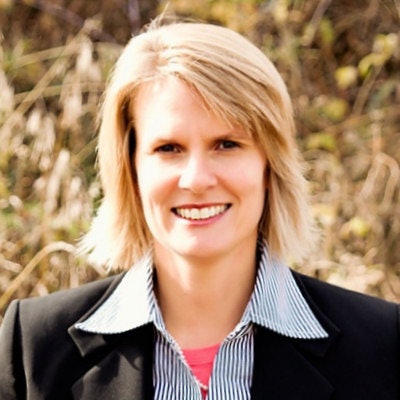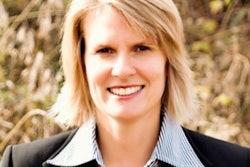
"But I brush," says almost every patient every time I tell them they have several cavities.
I launch into my educational mode about how cavities are made, yet patients are still stunned and surprised by the decay I find. Many really honestly think they should not get cavities if they brush and floss their teeth regularly -- even if they frequently eat or drink sugar-laden foods and beverages.
 Lisa Knowles, DDS.
Lisa Knowles, DDS.Or, they do not understand the frequency part in sugar intake. They make their sugary beverage last all morning and brush right after they are done. They think they are safe. They do not know.
With good reason, the dental field made a big deal about brushing and flossing teeth. But, we did a below-average job when it comes to educating others about the ill effects of sugar and other contributing factors that help create the environment for decay. We made a good-faith effort, but many dentists did not dig deeply enough to find cavity causers when needed.
As a child, I rarely had feedback about the cavities being filled. To befriend me, I think my dentist worried about sounding too scornful or negative, so he skipped the behavioral change recommendations with me and my mom. Or, maybe he mentioned it, but it never seemed too serious. Nothing changed. The cavities kept coming.
What can we do?
Professionals have a difficult time knowing when to offer parenting advice and when not to. It's hard to know how accountable to hold someone for their oral health or their child's oral health. We typically do not have the communication training to take part in this potentially dangerous dance around the truth with parents.
“I know we can do better as a profession to educate our patients about the way decay is formed.”
What can we do? I let my patients take the lead. If they are stunned about their decay and truly seem interested in changing their situation in the future, I talk more and help them think about their specific situations that may be contributing to the decay.
I help them realize how they may be getting too much sugar in their diets. I help them realize it may be their lack of bedtime brushing that is a factor in the problem. I help them understand the side effects of their prescription drugs that may be causing their xerostomia.
If someone doesn't take the time to listen to my guidance, I simply fill his or her teeth, and our relationship remains more transactional versus more relational and educational. I wait. They may not be ready to learn or may not be ready to change. I plant a dental knowledge seed, and I let them decide what will happen to that seed.
Pediatric patients
A child, though, seems quite helpless in these kinds of situations. The parents have to show an interest in their child's behavior.
Sometimes health motivates parents to change their child's diet, or it motivates them to dig into the root cause of a deeper problem. Sometimes it's financial motivation that encourages them to take action. They are tired of shelling out money for restorations. Whatever the reason, we have to recognize their readiness to receive our knowledge and help them change something for their child's overall health and wellness. In a busy environment, and probably why dentists receive a below-average grade in this area, the educational component gets skipped. No dental knowledge seed gets planted, or it fails to get watered often enough to take root.
Contributing to this conundrum, and as explained in a 2015 DrBicuspid.com article, the sugar industry's lobbying efforts furthered the disconnect for people. Back in the 1960s, the sugar industry lobbied influencers at the National Institutes of Health to get funding for caries eradication research rather than for diet-related projects in the quest to stop the world's most common disease. Sadly, this selfish effort stalled the progress in caries prevention.
The lack of knowledge in the public is quite disturbing. I know we can do better as a profession to educate our patients about the way decay is formed. As we emphasize better diet choices, in addition to other helpful deterrents such as fluoridated products and biofilm breakers, the fight against decay can escalate to a war on decay with better results and a greater understanding of the problems causing the suffering.
Lisa Knowles, DDS, practices at Haslett East Lansing Dental Health & Wellness in East Lansing, MI, and is the founder and CEO of IntentionalDental Consulting. For more information, contact her at [email protected], or visit her website at Beyond32Teeth.com.
The comments and observations expressed herein do not necessarily reflect the opinions of DrBicuspid.com, nor should they be construed as an endorsement or admonishment of any particular idea, vendor, or organization.



















